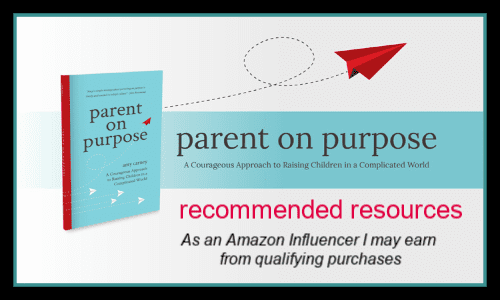6 Things Parents Should Not Debate With Their Child’s Coach
When did it become okay for moms and dads to rant and rave in the stands and feel entitled to text, email and call up their child’s coaches about anything that rubs them wrong?
I recently read this article about a high school coach who left her coaching position because of the overinvolvement of parents. Unfortunately, this narrative is becoming commonplace at all levels of youth sports.
How did my husband Keith ever make it to the NHL without his parents intervening?
My Father-in-law, Jack, says that he never once questioned a coach (good or bad) during Keith’s ENTIRE youth hockey career. Jack also coached football himself and said that he had to ask kids to track down their parents if he ever needed them because they were nowhere to be found.

We don’t have a problem tracking down parents anymore.
They are found on every sideline and set of bleachers today and have made their child’s sport a priority in their adult life.
The problem is that many parents are negatively making their presence known today.
Parents overinvolvement affects our children’s sports experience and their overall love and passion for the game. Three of my five children have played high-level multi-sports, so I get the intensity of it all, but there are certain things parents should refrain from bugging the coaches about.
Let’s begin giving the game back to the kids by letting the athlete be the athlete, and the Coach be the Coach.
6 Things Parents Should Not Debate with Their Child’s Coach
-
Playing Time:
The number one thing parents complain about is their child’s playing time. “Why isn’t my child playing more?” Families put in a lot of time and money and naturally have expectations based on this, but back off and trust the coach.
Any playing time questions should ultimately be an athlete-coach conversation, not a parent-coach discussion. If an athlete feels they are being slighted, it’s up to them to talk it over with the Coach. If your child isn’t comfortable doing so, then perhaps you teach your child how to have the discussion but don’t do it for them.

I happened to walk by this meeting on the soccer field and I could hear the coach pleading with his parents to stop complaining about playing time and let him coach.
-
Positioning:
Coaches have a method to their madness. They put a lot of thought into their game plans. If they feel they need to switch up player positioning, then they will do it. No Coach needs a parent requesting changes be made to their lineup. Once again, if your athlete feels a change should be made, by all means, they should request a meeting with their Coach.
-
Winning:
I think a lot of parents forget there’s an important thing called development in youth sports and losses are part of that development. No Coach sets out to purposely lose. They are likely just as competitive as you, if not more. The difference is a good coach understands that sometimes you may have a losing season in spite of gained improvement. It is a huge mistake only to see a winning season as a successful one.

-
All-Star teams:
Maybe your child will be chosen for the end-of-the-year all-star team or maybe they won’t. Please don’t plead your case to the Coach on why your child is deserving. The decision is not yours to make. And if your athlete isn’t chosen, don’t bug the Coach about why not. If it means enough to your child, he or she can ask Coach how to improve and use not making that team as a motivating tool for the next season.
-
Teammates:
Don’t critique your kid’s teammates or question the coach about another’s playing time or overall gameplay. Your focus as a parent should only be on your child and that he is personally developing and enjoying the friends he is making by playing this sport. If your child is experiencing problems with another in the locker room or on the field, have him talk to the Coach about it.
-
Team Strategy:
If you don’t know the ins and outs of the sport, perhaps you should refrain from questioning the Coach about his team strategy. Youth coaches certainly aren’t raking in the dough, so they aren’t coaching your kid for the money. Coaches are passionate about their sport and want to teach this next generation to play a game that they love.
Let’s show our coaches some love this season by backing off and respecting their leadership by letting them lead.
This post was originally published on I Love to Watch You Play.




I generally agree with all of these, but I feel like they assume that the coach is ultimately a fair and decent human being and that your kid is either older or especially blessed at being tactful. My son played travel lacrosse for a couple years on the same team, under the same coach. Year 1 was great. He was young but learning. Year 2, without explanation, the coach barely played him. There were only four kids in his position, and three were on the field at the same time–and generally it was the same three kids…all game, 95 degree heat, few breaks. If it was a close game our son only received one shift. The other kids *may* have been better, but he was certainly not a liability, and he wasn’t going to get better by missing so much game action or being judged on one shift going in cold. We’d drive 5+ hours to these tournaments, and we were paying the same crazy fees everyone else was. He was only 10 years old at the time, still young enough for learning to be the priority–only that year it appeared winning was. It was hard for our son to speak with the coach about it, as he did not want to seem like he was complaining. When he would try to hint at it, the coach would essentially give him a couple things to work on (but nothing concrete or beyond what everyone else at that age struggles with) and generally dismiss his concerns. When nothing changed, eventually my husband very carefully inquired what he might need to do better to play more and received the same sort of dismissal. Adding to the frustration is that this was a faith-based organization, and the way we were treated didn’t seem quite up to their character standards. Our son was the only one to not make the team the next year, but again, no explanation why or suggestion on what he could do to improve, despite two years with that team. His spirit was pretty shot by that point, and a year later his passion was gone and another sport took its place. My point is that some coaches will either take advantage of being “the boss” to shoot down even the most earnest inquiry, or they will conveniently lay out thinly veiled threats about consequences if anyone asks about playing time, and it essentially handcuffs everyone in the event something unfair or detrimental is actually taking place. A kid (at least a younger one) would be hard-pressed to navigate the politics and emotions in something like that, so I think there’s a point where a parent could step in and ask a very simple question to better understand what’s happening. At younger ages the focus should be on learning and helping everyone to feel a part of the team. Even in travel sports, at that age we were assured it was about learning and character development, but that didn’t play out in the coach’s actions. We have consistently instilled in our son that you have to trust your coach, but that experience taught me that there are instances where advocating for your child may be the only option…and sadly it still may not work.